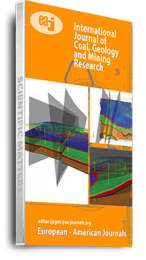This study presents an interpretation of well log data from five wells in the Pearl field, Niger Delta, Nigeria. Log analysis combining gamma ray (GR), resistivity (LLD), neutron (PHIN), and density (RHOD) logs effectively defined the depth and thickness of hydrocarbon- bearing zones. Depth correlation and permeable zone identification utilized gamma ray and caliper logs, characterizing two reservoirs across the studied wells. Well log analysis enabled the characterization of lithological descriptions and calculation of petrophysical parameters such as porosity, net-to gross, water saturation, and hydrocarbon saturation. Results show average porosity values of 0.29 and 0.27 for Reservoir 1 and 2, respectively. Water saturation values of 0.35 and 0.33, average net-to gross value of 0.88 and 0.81, and hydrocarbon saturation value of 0.65 and 0.67 were obtained for Reservoir 1 and 2 respectively. These results findings indicate a potential hydrocarbon source and a satisfactory reservoir system for hydrocarbon production. Further testing is recommended to quantify production capacity.
Keywords: Petrophysical interpretation, hydrocarbon, pearl field, reservoir, well log data

